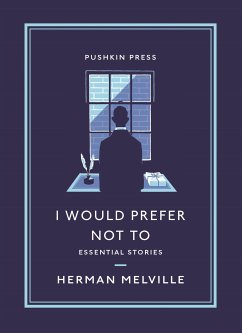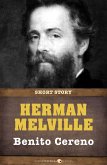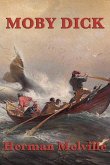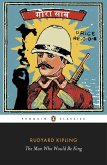A new selection of Melville's most electrifying stories, in a beautiful Pushkin Collection edition
'Some of the most brilliant stories of his or any other century' Philip Hoare, author of Leviathan
Herman Melville produced some of the most singular, enigmatic stories in American literature. From surreally funny tales of office life to claustrophobic accounts of obscure tensions at sea, his darkly modern sensibility produced works of unparalleled narrative inventiveness.
A lawyer hires a new copyist, who begins to exhibit a strange, confounding resistance to work. A cynical lightning-rod salesman plies his trade by exploiting fears in stormy weather. After boarding a beleaguered Spanish slave ship, a cheerful American trader is repeatedly struck by paralyzing unease as figures move in the shadows. These are stories of unsettling ironies and absurd humour, where nothing is as it first appears.
'Some of the most brilliant stories of his or any other century' Philip Hoare, author of Leviathan
Herman Melville produced some of the most singular, enigmatic stories in American literature. From surreally funny tales of office life to claustrophobic accounts of obscure tensions at sea, his darkly modern sensibility produced works of unparalleled narrative inventiveness.
A lawyer hires a new copyist, who begins to exhibit a strange, confounding resistance to work. A cynical lightning-rod salesman plies his trade by exploiting fears in stormy weather. After boarding a beleaguered Spanish slave ship, a cheerful American trader is repeatedly struck by paralyzing unease as figures move in the shadows. These are stories of unsettling ironies and absurd humour, where nothing is as it first appears.
Dieser Download kann aus rechtlichen Gründen nur mit Rechnungsadresse in A, B, BG, CY, CZ, D, DK, EW, E, FIN, F, GR, H, IRL, I, LT, L, LR, M, NL, PL, P, R, S, SLO, SK ausgeliefert werden.










